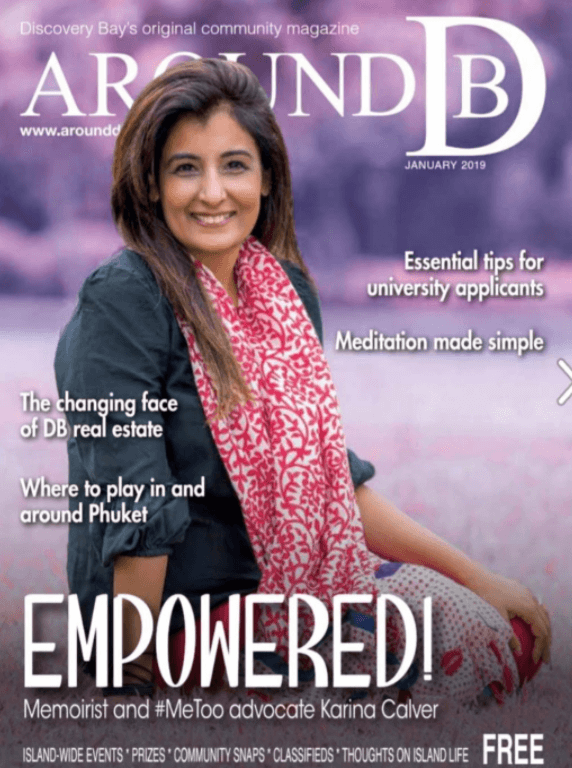Assault survivors: The inevitable trauma that follows
- By: Simran VaswaniEdited by: AlecLastimosa
- 2020-12-16
Divya, 23, sits on the rooftop of the building she lives in and savours the pink and purple sunset Hong Kong has to offer. It's her favourite place in the world, her comfort, like being wrapped up in a big, cosy blanket on a chilly day.
But in that same place more than 10 years ago was where she was sexually assaulted.
At the time, she was 12 and her assaulter was 20. He was a relative who stayed under the same roof as her and would touch her inappropriately almost every day until she was 14.
Until one day, while it was happening, she blacked out.
She doesn't recall anything apart from waking up and shoving him off her. After that point, family tensions started rising due to unrelated reasons and he was out of her life for good.
To this day Divya, who asked to be identified only by her first name, hasn't mentioned it to anyone in her family for she was terrified of victim-blaming, a prominent yet toxic culture in South Asian households where she was raised.
Sexual violence is more likely to occur in patriarchal cultures, research has shown, and victim-blaming, when a woman is blamed for causing the assault because of her clothes or behaviour, is still prevalent.
"I was afraid that people would think it was my fault," she said.
31 cases of rape and 414 cases of indecent assault have been reported as of August this year, according to statistics from the Hong Kong Police Force. While it showed a decrease compared to statistics last year, the reality is that many victims of sexual assault do not come forward.
One out of seven women will experience sexual violence in Hong Kong, but nine out of ten stay silent in a report conducted by The Woman's Foundation.
She was 16 when she briefly told a friend about this, that was the first time she said it out loud to someone apart from herself. After blocking herself from thinking about it time and time again, she started experiencing vivid flashbacks.
"Sometimes, I feel him on top of me," she said.
Divya struggles to come to terms with the fact that her perpetrator got off easy, unlike her. "I do feel it's unfair because he's married right now and has a daughter."
"I don't feel like he deserves it."
90 to 95% of sexually harassed women suffer from anxiety, depression, weight loss or gain and sexual dysfunction as forms of debilitating stress reactions, according to the Equal Rights Advocate.
"It depends on person to person, some people go through depression, some people get anxiety to the extent that they can't cope, some people compartmentalise and become masculine," said Karina Calver, a freelance trauma counsellor, who has been doing pro-bono work for almost seven years.
Ms Calver said the effects of sexual assault can heavily influence intimacy in relationships for trauma survivors. It takes a significant amount of time to get comfortable after the assault, survivors subconsciously think of ways to avoid intimacy or repairing their trust issues when in a relationship.

But truly letting go of that trauma starts from within. "The hardest part is to acknowledge it yourself, you will be angry, you will be crying, you will be pissed off, you'll probably be in rage and that's okay," she said. "It's allowing yourself to feel all those emotions."
Since it happened at such a young age, Divya was unable to recognise her emotions, leaving her to feel numb. She mentioned being heavily depressed and anxious, but often swept it under the rug because she couldn't process her symptoms and feelings.
She started to gain weight, one of the defence mechanisms found in victims. She wanted to appear unattractive and avoid any form of intimacy in romantic relationships. This was her way of saying no without actually saying no, her armour and shield for protection.
She still wakes up in the middle of her sleep from haunting nightmares, getting panic attacks and flashbacks.
"Oftentimes we think we know an issue well until we really hear the voices of individuals who actively face these issues," said Bidhya Shrestha, chairperson and founder of Aama Ko Koseli, a student-led non-profit organisation that focuses on gender issues.
She mentioned how shedding light on sexual assault victims and giving them chances to amplify their voices is critical in supporting and allowing them to heal.

"[We should] keep ourselves in check and informed with the realities rather than making assumptions about what these individuals might need," said Ms Shrestha.
After all these years, Divya decided to seek support from counselling. She says her experience of assault was not her motive, but may have subconsciously led her. It was just recently she opened up to her councillor about the assault.
She even remembers the exact day she opened up to her counsellor. It was as if a decade-old lump had finally been cleared out of her throat. "I wanted to get better and it felt good telling somebody,"
"It was a bad experience, but it doesn't define me anymore," said Divya.
《The Young Reporter》
The Young Reporter (TYR) started as a newspaper in 1969. Today, it is published across multiple media platforms and updated constantly to bring the latest news and analyses to its readers.

The New Norm: An Online World

Hong Kong legislation fails to curb animal cruelty




Comments